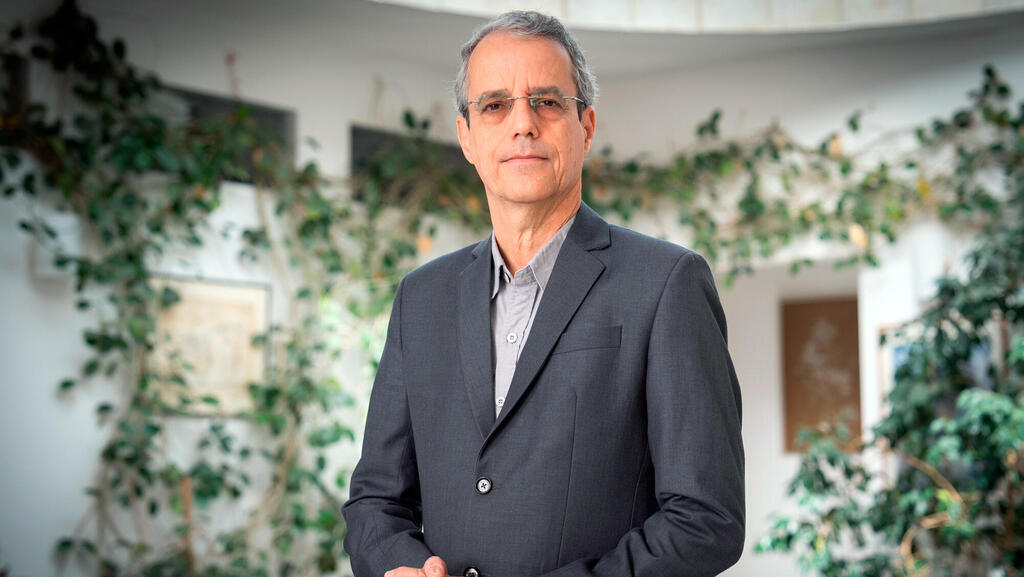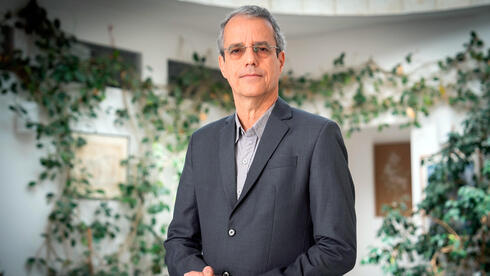As Dr. Gideon Friedman bids farewell to his role as chief scientist at the Department of Energy, he issued an urgent warning that Israel's science funding is facing a critical decline. In his exclusive interview, Dr. Friedman revealed how budget cuts are endangering innovation, stifling solutions to climate change, and jeopardizing Israel's future as a technology powerhouse. With candid insight into bureaucratic hurdles and missed opportunities, he makes a convincing case for urgent action to protect Israel's place in the global energy landscape.
“This government has decided to harm academic research. This is the wrong move, expressed not only by the cuts to the Department of Energy's Scientist Department. The cuts to the Institute of Volcanology are terrible. The government's approach is to curtail academic research in Israel.'' “They don't understand how destructive this is for our future. Israel's relative advantage is its technological prowess. is built on high technology, and high technology cannot exist without academia.The research and development that comes from academia is the foundation of the world.''
1 View gallery


gideon friedman
(Photo: Shareef Shalom)
The budget of the unit you led was cut by 38% in 2023 under Netanyahu. Is that why you left?
“When my budget was cut, that was a big trigger for me to resign. I understand that it's not a temporary problem, it's only going to get worse, and there's no point in continuing. I thought no. The main implication of the cuts is that there will be much less support for the public. “Research and industrial development. This could cause a crisis in the field of Israel. There are companies that need help. My strategy as principal investigator was to increase the budget, because this is how we improve Israeli technology and industry. “It's about making the energy economy more advanced and cleaner. This is not an elegant vision. We all know that promoting clean energy requires funding. With the help of then-CEO Udi Adiri, we are committed to providing significant funding in 2021. Money was put in. The success was not repeated. Instead of introducing other budgetary sources, the Treasury canceled the future commitments given at the expense of the carbon tax. Now the carbon tax has been returned, but not the budget, which is deducted from the budget in the tens of millions of shekels annually.
“Israel has not focused on reducing carbon dioxide. The government has said that 'our contribution to the fight against the climate crisis will come through technological development.' So we stand by this statement and support the development of breakthrough technologies. “We don't have enough energy, and we find that there is no energy unless we intensify research.'' It will be cancelled. In two years, once we get the funding, the researchers will go elsewhere, and all the research they started five years ago will be wasted.”
The Treasury Department wants to dismantle the chief scientist's department and instead create a single fund that would allocate funding competitively. Why is that a bad idea?
“The role of the Chief Scientist is to link the office with the economy and the economy with the office. Facilitate the entry of advanced technologies and ensure that the market delivers technological advances that are adapted to the needs of the economy and government policy. These are departments that support the minister's policies and are also part of the decision-making process. The department brings knowledge from overseas, economics and academia to the office. It is important that they are powerful and meaningful. In addition to this, if the economy is to listen to what the government has to say, it needs the carrot of supporting activity and integrating innovative technology. If the government tears it apart, it won't work. That's the correct way. Support for companies and pilots is through the chief scientist: he knows the market, policies and regulations well and knows how to spend the funds in the best way. Although it is not a naturally wealthy sector, there are quite a few interesting initiatives taking place. We have overcome that in recent years. International cooperation is also something that only the principal investigator's unit can engage in with overseas counterparts. We have a successful partnership with the United States. My desire to expand it did not come true because there was no money.
“For example, we are establishing research institutes in nuclear fusion and energy storage, areas where Israel has a relative advantage and which we recognize as very important. He supported the installation of charging stations even before they became widespread and published the results of his research. “Already in 2016, we tested how many charging stations were needed in urban areas. We did a small experiment to learn how things work and asked for grants to install charging stations. That's what drove the market up.” More than 10 charging companies have since submitted offers to these centers. appeared and the market woke up. ”
Most of today's investments come from the private sector.
“Government investment in research and development in Israel is among the lowest in the world. In areas such as climate change, private investment makes no sense. The risks are usually very high and development times are very long.12 “It takes years, and the distribution of profits is small. This is different from the investment areas of pharmaceuticals and software. Such investments should be led by the government. The focus is on narrow economic interests. Investors are interested in money, but we want to solve the climate problem. The government has goals whose economic logic is not purely commercial. ”
Does Israel still have an advantage over the world?
“The flexibility of Israel's culture gives us an advantage. There's something about the term 'start-up nation.' “We know how to do things cheaply. Startups here can survive on $3 million to get started. “In America, you can't survive on less than $10 million. We know how to save money.We don't establish a laboratory until the end, some of it is done at the university, we buy used equipment, etc.We are mentally unstable.''Overseas institutions are complicated. In many cases, we make it easier for companies to make decisions.
“The problem is that we are doing well in the early stages, but we are faltering in the more advanced stages. “And on the other hand, they have allowed Israeli entrepreneurs to gain managerial and methodological experience to properly grow their ventures. But in the field of energy So this didn't happen. We're missing this stage that comes after a small startup. The stage of bringing a product to market. We're bad at this. It means we need to recruit companies and incentivize governments. This will happen when international companies realize that they can pilot and operate here. And that will require real support from governments. I am receiving it.”
Israel's energy market is outdated compared to developed countries.
“In Israel, we were the last country to adopt innovative technologies. If you want an advanced energy economy, you can't say, 'We will be the last to introduce innovative technologies.' Hmm. We have a conservative bureaucracy. They don't want to take risks or take risks.'' Ten years ago, they said, “Why does Israel need renewable energy? We will wait. We will install only after the price falls. Even if it means something, it means that we will always be last, and this has consequences ” – even at the level of the local market It's the same thing: Israeli companies have innovative products, but they don't have a place to try them. They go to foundations and governments all over the world and say, “What, you haven't even tried it here?'' They go home. Please come back again. However, if it is difficult for companies to launch pilots and deploy technology in Israel, it will be difficult for companies to move forward and grow. Nor can we easily bring foreign technology here. Because it's too innovative and no one wants to take the risk. ”
Will Israel be able to meet the renewable energy goals it has set for itself? Why aren't we successful in this field?
“First of all, you have to want to do it. When you want to do it, you can do it, but if you don't want to do it, it's more difficult. You need to make sure that you get up off the ground and succeed. For example, the Oron-Zin region of the Negev. It is a very widely disused area of old quarries where the ecosystem has been disturbed. The Department of Environmental Protection wants to restore the quarry and return it to nature. The damage has already been done and we need regions to generate renewable energy. The story of the Gaza siege also calls into question the word “scarcity”. However, the ministries of environment and agriculture are opposed to the use of the area. The government needs to set priorities. If you want renewable energy, it's definitely possible. Mixing should be encouraged: one-third on the roof, one-third in dual use, and a third on land. ”
What does it take to bring renewable energy here?
“We need to set a goal of 60% of today's total electricity consumption being renewable by 2040. This will require everyone, including power companies and private gas producers, to It sends a signal that, with your help, we will build an economy based on renewable energy.”


